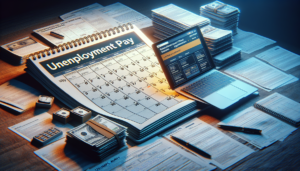Introduction to Unpaid Parking Tickets
Receiving a parking ticket can be frustrating, but failing to pay it can lead to far more severe consequences. Many people wonder what happens if you don’t pay a parking ticket and the unpaid parking tickets consequences they may face. This article will explore the potential ramifications of ignoring a parking citation and provide guidance on how to handle the situation responsibly.
What is a Parking Ticket?
A parking ticket is a notice issued by a local authority or law enforcement agency for a violation of parking regulations. These tickets are typically placed on the windshield of the offending vehicle and include information about the nature of the violation, the fine amount, and instructions for payment or contesting the citation.
Common Reasons for Receiving a Parking Ticket
Parking violations can occur for various reasons, such as:
- Parking in a restricted area (e.g., fire hydrant, no parking zone)
- Exceeding the allowed time limit in a parking spot
- Failing to pay for parking in a metered or pay-and-display area
- Parking in a handicap space without a proper permit
- Blocking a driveway or sidewalk
It’s essential to familiarize yourself with local parking regulations to avoid unintentionally violating them and receiving a ticket.
Immediate Consequences of Not Paying a Parking Ticket
Accumulation of Fines and Extra Charges
One of the most immediate consequences of not paying a parking ticket is the accumulation of parking ticket fines and extra charges. Many jurisdictions impose late fees or penalties if a ticket is not paid by the specified due date. These additional costs can quickly add up, making the original fine much more expensive.
For example, a $50 parking ticket might double or triple in cost after the first month of non-payment. Some cities also charge interest on unpaid fines, further increasing the amount owed over time.
Vehicle Booting and Towing
In some cases, failing to pay multiple parking tickets can result in vehicle booting or vehicle towing. A boot is a device that is attached to the wheel of a car, immobilizing it until the outstanding fines are paid. If the fines remain unpaid, the vehicle may be towed to an impound lot, which can incur additional fees for towing and storage.
To release a booted or impounded vehicle, the owner must typically pay all outstanding tickets, as well as any boot removal or towing fees. This can quickly become a costly and time-consuming process.
Legal and Financial Repercussions
License Suspension
In some jurisdictions, unpaid parking tickets can lead to the suspension of your driver’s license or vehicle registration. This means that you may not be able to legally drive until you resolve the outstanding tickets and pay any associated reinstatement fees.
Driving with a suspended license can result in further legal troubles, including criminal charges and additional fines.
Issuance of Warrants
If parking tickets remain unpaid for an extended period, a warrant may be issued for the vehicle owner’s arrest. This is more likely to occur if the individual has multiple unpaid tickets or has failed to appear in municipal court to address the citations.
An arrest warrant related to unpaid parking tickets can lead to jail time, court appearances, and a criminal record. It is crucial to address tickets promptly to avoid this serious consequence.
Court Hearings and Legal Proceedings
In some cases, court hearings may be required to resolve unpaid parking tickets. This can occur if the vehicle owner wishes to contest the tickets or if the municipal court summons the individual to address the outstanding fines.
Failing to appear for a court hearing can result in additional penalties and legal action, including the issuance of a warrant. It is essential to attend any required court appearances and provide relevant evidence if contesting the tickets.
Impact on Credit Score and Financial Health
Involvement of Collection Agencies
If parking tickets remain unpaid, the issuing authority may engage collection agencies to pursue the debt. These agencies can be persistent in their attempts to collect payment, including making phone calls, sending letters, and potentially taking legal action.
Having unpaid tickets in collections can also negatively impact your credit score, making it more difficult to secure loans, credit cards, or even housing in the future.
Negative Impact on Credit Score
Unpaid parking tickets can significantly impact your credit score, especially if they are reported to credit bureaus or sent to collections. A lower credit score can lead to higher interest rates on loans, difficulty obtaining credit, and even challenges in securing employment or housing.
It is crucial to pay tickets promptly and avoid letting them escalate to the point where they are reported to credit agencies, as the negative impact can be long-lasting and difficult to resolve.
Vehicle Impoundment and Recovery
Process of Vehicle Impoundment
Vehicle impoundment is a serious consequence of unpaid parking tickets. If a vehicle is towed due to outstanding citations, it will be taken to an impound lot and held until the owner pays all fines and fees.
The process of vehicle impoundment can be costly and time-consuming, as the owner must locate the impound lot, provide proof of ownership, and pay all accumulated charges before the vehicle is released.
Steps to Recover an Impounded Vehicle
To recover an impounded vehicle, the owner must typically:
- Locate the impound lot where the vehicle is being held
- Provide proof of ownership and a valid driver’s license
- Pay all outstanding parking tickets and associated fines
- Pay the towing and storage fees incurred by the impound lot
- Arrange for transportation of the vehicle from the impound lot
The ticket payment and recovery process can be expensive and may require taking time off work or arranging for alternative transportation, making it a significant inconvenience.
Best Practices to Avoid Consequences
Prompt Payment of Tickets
The best way to avoid parking ticket fines and other consequences is to pay tickets promptly. Many jurisdictions offer discounts for early payment or allow for online or mail-in payments to make the process more convenient.
By addressing tickets quickly, you can avoid accumulating late fees, penalties, and the risk of more severe consequences like vehicle impoundment or license suspension.
Keeping Documentation
If you believe a parking ticket was issued in error or have supporting evidence to contest the citation, it is crucial to keep all relevant documentation. This may include photos, witness statements, or evidence of a malfunctioning parking meter.
Having thorough documentation can help support your case if you choose to dispute parking tickets through formal channels or in court.
Understanding Local Laws and Regulations
Familiarizing yourself with local parking laws and regulations can help you avoid unintentionally violating them and receiving tickets. This may involve researching street signage, parking meter hours, and any special rules for residential or commercial areas.
By understanding and following parking regulations, you can minimize the risk of receiving tickets and facing the potential consequences of non-payment.
Conclusion
Unpaid parking tickets can lead to a range of negative consequences, from accumulating fines and fees to vehicle impoundment, license suspension, and even legal action. Understanding what happens if you don’t pay a parking ticket is crucial for making informed decisions and avoiding these potential repercussions.
By addressing tickets promptly, keeping relevant documentation, and familiarizing yourself with local parking laws, you can navigate the process more effectively and minimize the risk of facing severe unpaid parking tickets consequences. If you do find yourself with an outstanding ticket, taking swift action to resolve the issue can help prevent the situation from escalating and impacting your financial and legal well-being.
See also:
- What Happens If You Don’t Pay a Speeding Ticket? Consequences Explained
- What Happens If You Don’t Pay a Toll in Another State?
- What Happens If You Don’t Pay Child Support? Consequences Explained
- How Much to Pay to Get Car Back After Repo: A Complete Guide
- How Do You Pay Restitution If You Have No Money? Solutions and Options






